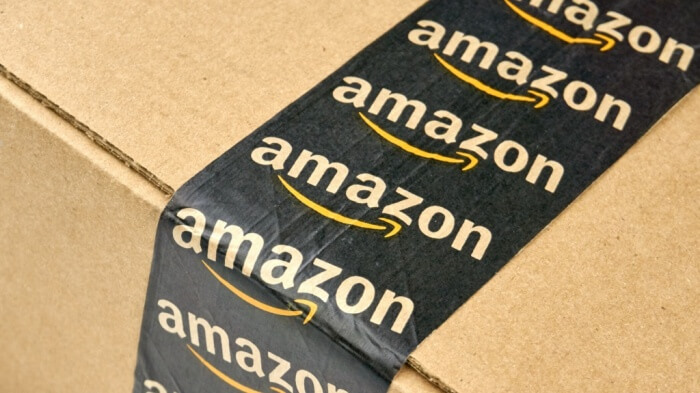When you’re a start-up or a small independent business, competing against retail giants is a daunting prospect.
How Small Independents Are Competing With Big Retail Brands Online
When you’re a start-up or a small independent business, competing against retail giants is a daunting prospect.

Big companies have strong technological infrastructure and fulfilment systems, scale, which gives them superior ordering power enabling them to keep prices low, plus a recognisable trusted brand which can literally cost millions of pounds to establish.
These retail giants also have the expertise and budget to invest in testing new solutions, staying at the cutting edge of business without sinking the company if it doesn’t work out.
Yet it is possible to compete. In fact, it is being done successfully by thousands of companies every day.
The strength of online retail is borne out by the numbers. Sales have continued to rise this year, despite fears immediately post-Brexit that we would see a decline. A recent report stated that online sales are 15% higher in 2016 than at the same point last year, and are an impressive 37.3% ahead of the start of year forecast.
And if you’re still struggling to have confidence in your own business’ ability to compete with the likes of Amazon, remember that even a retail Goliath like Amazon only accounts for 19% of online shopping transactions worldwide.
So what strategies and approaches can help maximise your chances, as a small independent, up against the big retailers? Here are 5 to try:
Test and learn:
Every business, whatever their size, will have a list of improvements they would like to make. The key thing to remember, however, is whichever project or campaign you choose, you have to know if it is working. If it is working, why? And if it isn’t working, what can you learn?
Chances are you aren’t working with the budget of a retail giant, so it is important you have an operational infrastructure that enables you to understand the return on investment for every project.
Which improvements are actually making the difference, and which are a drain on your time and resources? The technology you use on a day-to-day basis, for example, is designed to make your life easier, but how many times a week have you felt swamped by all these "tech solutions".
In this situation, you need to look at retail technology consolidation to make your technology more efficient. If you can get it all working in tandem, you'll find it much more helpful, and this applies to other areas of the business too. Before you consider adding to or changing any infrastructure, however, ensure you have the reporting in place to collect the right data and measure whether or not it’s a successful trial.
Find your niche:
By their very nature, smaller retailers are never going to compete with retail giants on volume or range of products, so the smart approach is to specialise. But the questions is how do you want to specialise?
There are many options – you can choose to offer high-end goods, targeting a select clientele and offering a carefully curated boutique-style product range in the knowledge it is likely to be high-price, low volume.
Alternatively, you could choose to cover the entire range of just one product, from super-cheap to top-of-the-line. If Amazon has 4 varieties of beach towels, you have 400. As a small or medium sized online shop, you can never be all things to all people – but you can sell beach towels to all of them.
Once you’ve specialised, you then need to become an expert in your field. If it’s beach towels, you should know everything there is to know about the product, from thread count to cotton fibres.
There should be no one at the retail giants who knows more about your products than you do, and by sharing that expertise and becoming the trusted specialist, your business can become the one-stop shop for that product.
Exploit your niche:
Great, so you’re now an expert. How are you going to use that to your advantage? The answer is content marketing. Use your natural expertise in your product niche to create engaging content that will drive people to your online shop. Here are some ideas:
- Videos: Make educational videos that demonstrate to your customers how to use products. Remember, the aim here is being helpful to build trust and credibility with potential customers, not to give them the hard sell
- Photos: It is worth investing in some professional, beautifully shot photos that show off your products to best advantage. Show the details of the products that customers will want to see, as well as images of them being used, worn or consumed to paint more of a lifestyle picture.
- Blogs: Write about your products from your expert position. What can you tell your customers about beach towels that they don’t already know? There is an opportunity to build a good depth of quality content in order to optimise your site to rank well for any online searches for your product category.
Show your personality:
Retail giants may have a lot of advantages, but they do not have an individual personality. As well-known as they are, big brands can feel impersonal, so here are 5 ways to personalise your online business:
- Share pictures of your team – people buy from people, so let your customers see the faces behind the business
- Make it absolutely painless for customers to get in touch with you – communication is key to personalisation, and it is a powerful way to build loyalty
- Tell your business story – customers will connect more with a brand when they understand what they are trying to achieve
- Engage in two-way conversation with customers on social media
- Develop a social responsibility programme to demonstrate your contribution to wider society
Compete directly where you have to:
Sometimes there is no way to compete other than to take the giants on head-to-head. Customers’ experiences of leading retailers shape their expectations, so they come to expect a certain level of customer service, delivery options and user experience.
This is particularly true for delivery. Customers now expect multiple delivery options, and that is equally true for retail giants and tiny one-man operations. 56% of online shoppers rated delivery choice as the most important factor when deciding to complete a purchase, and 74% of retailers see an increase in sales after offering more delivery options.
Click & Collect has become an increasingly popular option in recent years, as the lines between offline and online shopping blur, and it is estimated 76% of online shoppers will use Click & Collect in 2017.
Click & Collect used to be virtually beyond the reach of the average small online retailer, giving a strong competitive advantage for those brands with a High Street presence. However, a few companies have started to offer a Click & Collect network to smaller retailers by partnering with other small High Street retailers.
At HubBox we have built a nationwide Click & Collect network of trusted local shops that can be utilised by any online retailer without them needing to change their courier(s) or fulfilment systems. The tech solution can be integrated seamlessly and painlessly for the retailer, or even used by the customer themselves.
With technology solutions and a bit of ingenuity, there is plenty of room in the online retail landscape for smaller independents to compete with the likes of Amazon, John Lewis and Argos. Small savvy retailers must rise to the challenge and use their size to their advantage.
Sam Jarvis is the founder of innovative Click & Collect service, HubBox.
Thanks for signing up to Minutehack alerts.
Brilliant editorials heading your way soon.
Okay, Thanks!




